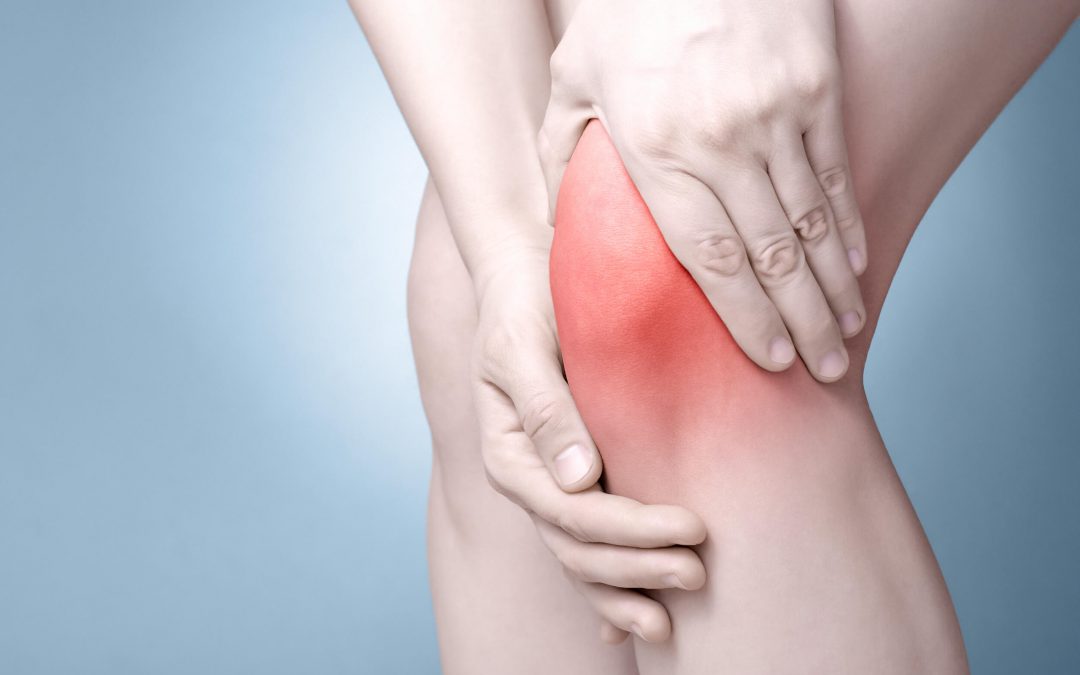
Physiotherapist
After a visit from the doctor to address your on-going knee pain they state; ‘It’s arthritis.’ Ah, well, it’s time to face it, I’m old, game over. Nothing can be done!
Myth!
Arthritis in the knee is a common source of knee pain that health professionals can treat. There are different forms of arthritis affecting different types of joints, however today, we will focus on osteoarthritis of the knee because it is very common!
Osteoarthritis is the most common form of arthritis. According to the Arthritis Society, it affects one in six Canadians, with this number increasing to potentially one in four Canadians by 2035. From the stats, it is estimated to affect 100 million people globally!
What Happens in an Osteoarthritic Knee?

- Osteoarthritic knee occurs gradually over months and years, thus it is important to address it earlier when you can.
- The surface of the knee is covered in cartilage which helps increase smooth movement. This cartilage becomes rough and thin and leads to the body repairing itself, causing the bone to grow outward, and boney spurs to form around the knee joint.
- As more boney spurs form and cartilage thins out, this will lead to more bone on bone contact, which will cause swelling and pain around the knee joint.
It is important to know that people who have joint changes can experience pain that comes and go without any further impact and pain. In many cases, your body is able to repair itself successfully and you can get better without further treatment. However, in the case where your knee pain doesn’t improve, it can lead to pain that last over time.
Signs and Symptoms

- Knee swelling
- Knee ‘cracking’ or ‘grinding’ when the knee moves
- Pain and tenderness around the knee
- Stiffness after periods of rest
- Pain during activity and relieved by rest
- Loss of movement in your knee
- Stiffness in the morning that eases off in about 30 minutes
- Trouble getting into a comfortable position when sleeping
Because these symptoms often leads to difficulty with going up and down the stairs, bending your knee, kneeling, squatting, getting stiff knees after sitting for too long, they can all affect your quality of life.
Risk Factors
There are a number of factors that can increase your chances of getting osteoarthritis:
- Old Age
- Gender: Men under the age of 50 are at higher risk of getting OA knee. Women over the age of 50 has a higher risk of OA than their male counterpart.
- Genetics: If your parents and family members have osteoarthritis
- Obesity: The more excess weight you carry, the more stress it places on your joints, especially your knees.
- History of Injuries: such as knee surgeries or torn meniscus.
- Occupation: jobs that involve a lot of kneeling, squatting or repetitive use
- Diet: People in the lower levels of vitamin C and vitamin D blood levels had a threefold risk of progression of knee osteoarthritis
- Sedentary lifestyle: (as previously covered in our last blog post)
Diagnosis
There is no single test to diagnose knee OA. The diagnosis is made based on your symptoms, your lifestyle and considering all these features we just mentioned above.
There are tests such as x-rays or MRIs which can be useful in the diagnosis of knee OA. It has been found that knee pain severity was a more important factor to determine functional impairment than x-ray or MRI severity of osteoarthritis, because not everyone that has an x-ray of severe knee OA is affected functionally.
Note: This is intended for educational purposes only. Do not treat this as medical advice. If you are having pain or health-related complaints, please seek out your doctor, licensed healthcare professional or speak to your health care professional at Nexus Massage and Rehab.
References:
- Haq I., Murphy E., & Dacre J. (2003). Osteoarthritis. Postgraduate Medical Journal, 79(933), 377-383.
- Heidari, B. (2011). Knee osteoarthritis prevalence, risk factors, pathogenesis and risk factors: part 1. Caspian Journal International Medicine, 2(2), 204-212.
- Hinman RS, Hunt MA, Creaby MW, Wrigley TV, McManus FJ,& Bennell KL. (2010). Hip muscle weakness in individuals with medial knee osteoarthritis. Arthritis Care Res, 62(8), 1190-1193.


